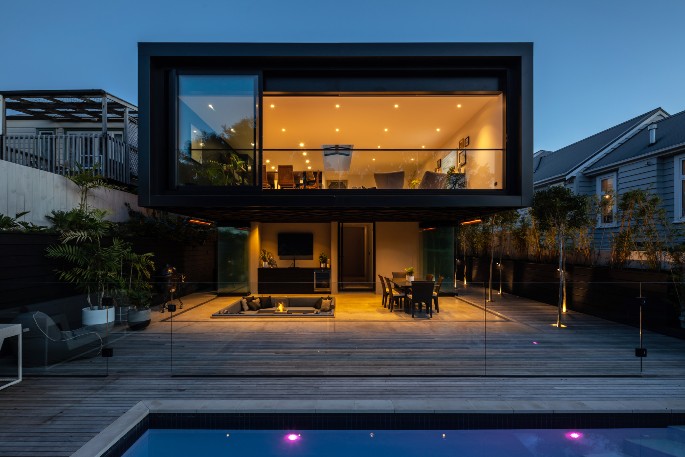This Content Is Only For Subscribers
New Zealand’s luxury residential rental sector is failing to keep pace with the surge in global demand, with agents warning that half of all high-net-worth travellers seeking premium stays are being turned away due to a shortage of suitable properties.
Industry experts warn the shortage could undermine the success of upcoming foreign buyer policy changes, as wealthy individuals often rely on extended stays to experience local life before committing to multimillion-dollar investments.
Stay Luxe co-founder Greg Owen says the supply constraints have reached a tipping point.
He says despite fielding up to 50 enquiries each week from overseas visitors willing to spend up to $15,000 per night on exclusive homes and services such as private chefs and wellness treatments, there are too few available properties.
Greg says the underutilisation of luxury housing represents a multimillion-dollar annual opportunity cost for homeowners, service providers and the wider economy.
“Many of these homes sit unoccupied for extended periods as their owners travel overseas or relocate to other centres, leaving high-value assets idle rather than contributing to the tourism economy. Unlocking that capacity is critical to the expansion of New Zealand’s accommodation infrastructure.
“We are seeing unprecedented demand from wealthy individuals and families looking for prestige residential properties with privacy, premium finishes and a level of professional management. Without a larger pool of stock, these travellers and their spending power will go elsewhere,” says Greg.
Greg says the luxury stay market also provides an immersive level of suburban experience for potential investors that hotels cannot offer. Stay Luxe has experienced 10 per cent growth each month, reflecting a rising international appetite for New Zealand as a destination for extended, luxury stays.
“The bulk of enquiries are coming from North America and Europe, particularly Germany and the United States, where clients are often motivated by lifestyle relocation or disillusionment with conditions in their home countries.
“Many of our clients will stay for months in premium homes, experiencing suburban environments, local communities and schooling options before deciding to invest millions of dollars in a luxury property. That’s something a hotel stay simply cannot replicate,” says Greg.
Greg says typical stays range from three weeks to 12 months, with many clients using luxury rentals as a “try before you buy” gateway before investing in New Zealand property.
About one in ten renters ultimately go on to purchase the homes they stay in, underlining the sector’s role as a pipeline for foreign investment.
He says even with dozens of managed properties in Auckland, Stay Luxe cannot keep pace with demand. When high-net-worth travellers cannot secure a suitable luxury rental, they often default to overseas-owned hotel chains.
“We could double the number of premium homes immediately just to cover current enquiries, and more are coming online each week. At the moment we are turning away as many guests as we accept. Ultimately, this means homeowners are losing out, and hundreds of thousands of dollars are being lost every week.
“That is money unnecessarily lost to the New Zealand economy. A luxury rental keeps spending in local hands, whether it’s cleaners, chefs, spa therapists or property managers, whereas hotel profits largely flow offshore,” says Greg.
He says spending figures highlight what is at stake.
“One current enquiry from a North American billionaire involves $500,000 for a 90-day stay, with another $150,000 earmarked for in-house staff, cleaning and ancillary services.
“In another instance, a $150,000 waterfront booking was confirmed online in a single transaction – without prior inspection. That shows the level of confidence these guests have in New Zealand as a destination and in the premium end of the market.
“These guests are not just booking accommodation, they are dining at the country’s top restaurants, visiting retail precincts and exploring wider tourism experiences. The flow-on effects to the economy are significant,” says Greg.
Stay Luxe estimates luxury rentals can generate two to three times the revenue of a standard long-term lease, offering property owners both income and professional management.
Greg says many owners underestimate what their homes could earn.
“A lot of homeowners think short-term luxury rentals mean parties or high risk. In reality, our clients are corporate families or investors who take great care of the properties. Many owners are surprised to learn their homes could command $8000 a week when they might otherwise settle for $2000 on the standard rental market,” says Greg.
“Clients expect premium features such as swimming pools, gyms or tennis courts, and they want properties in prime locations whether that’s central Auckland suburbs near top schools, exclusive waterfronts or lifestyle estates in areas like Coatesville.
“North Americans love the modern, open-plan waterfront homes, while European clients often want character villas with heritage charm but modern interiors. Across the board, privacy is paramount,” says Greg.
He warns New Zealand risks falling behind Australia, where the luxury rental market is more advanced.
“Australia has built well-developed inventory levels and systems to cater for high-net-worth travellers. They understand that if you capture them once, they return again and again, often as investors.
“By contrast, New Zealand’s limited pool of suitable homes is leaving money on the table. We have the landscapes, the culture and the safety that attract the world’s elite, but without the properties available to host them, they will choose elsewhere,” says Greg.
Greg is urging both property owners and policymakers to recognise the luxury stay market as a strategic growth sector.
“Expanding this market isn’t just about private gain. It supports local jobs, boosts hospitality and service industries, and builds pathways for foreign investment. If New Zealand wants to position itself as a premium destination, we need to start treating luxury rentals as core tourism infrastructure,” says Greg.



